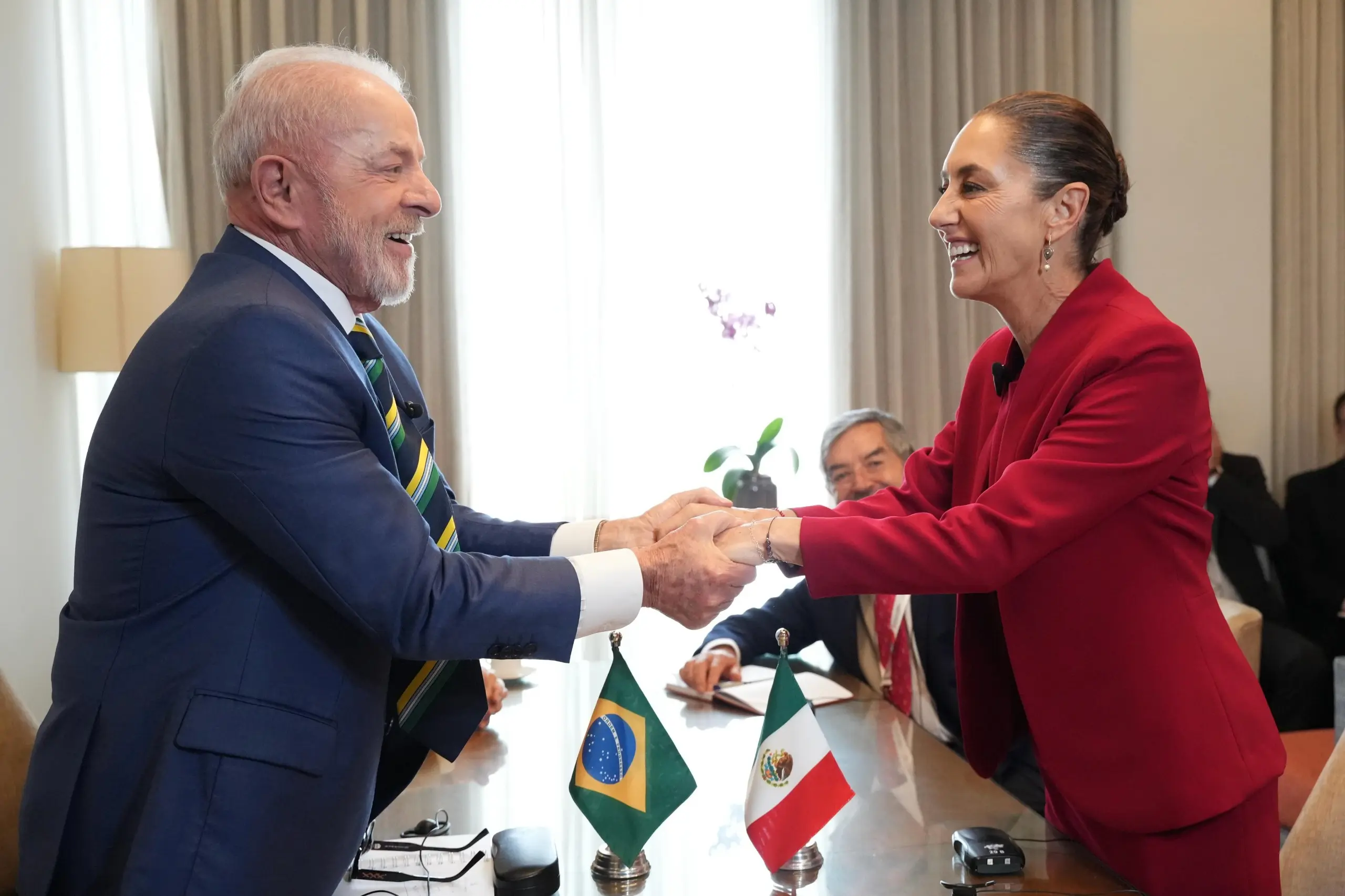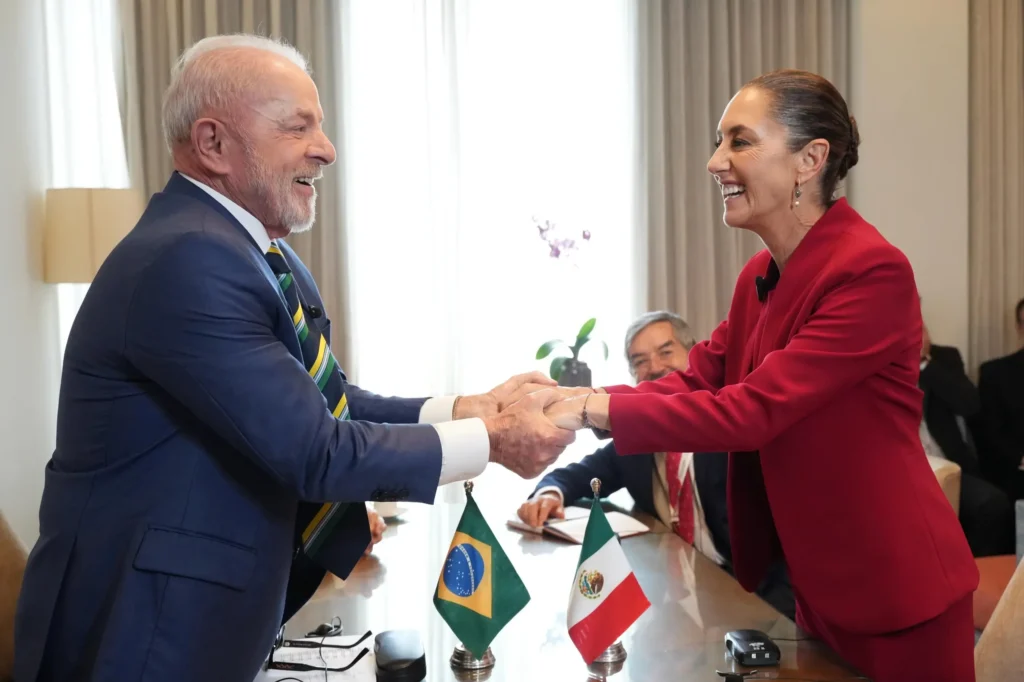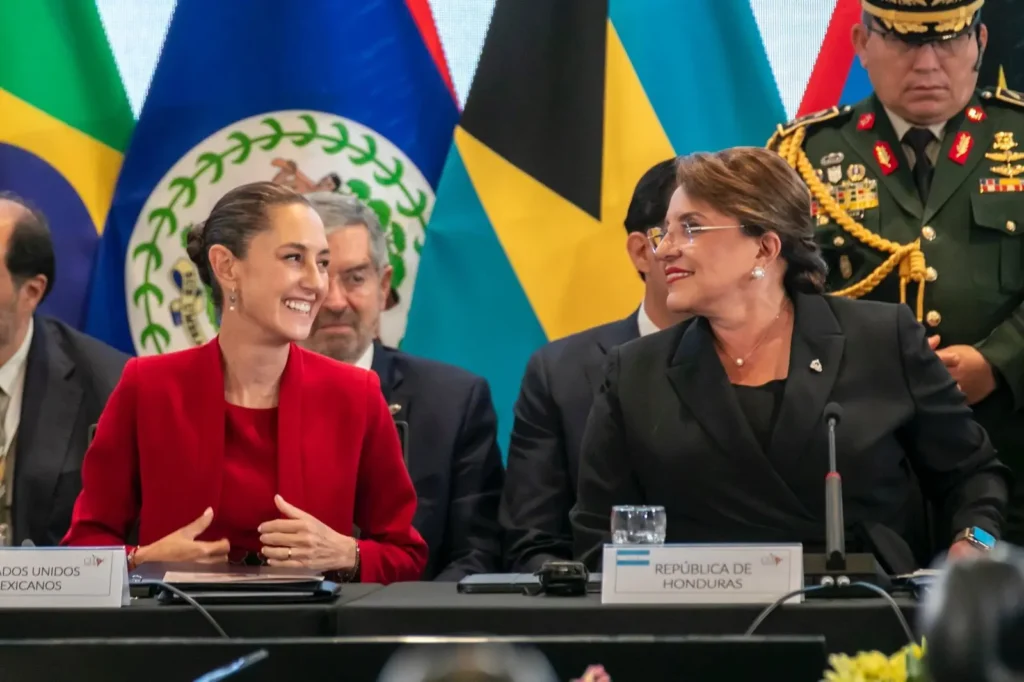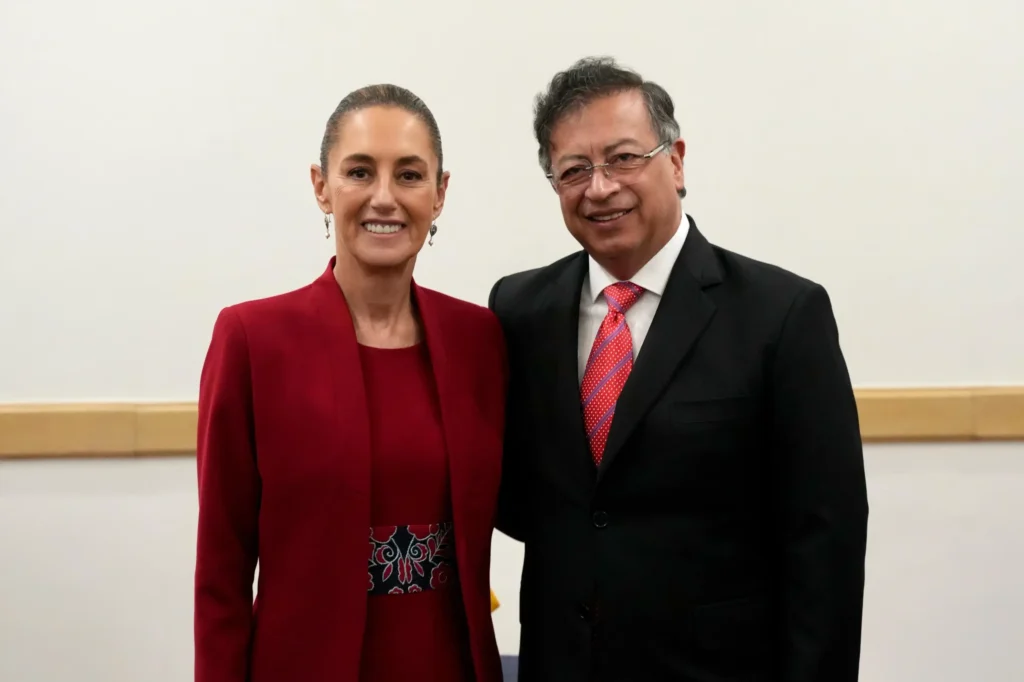
The proposal to hold a Summit for the Economic Well-being of Latin America, presented this Wednesday by President Claudia Sheinbaum, could build the influence and capabilities that the Community of Latin American and Caribbean States (CELAC) has so far lacked in the context of the widespread search for alternatives to US commercial hegemony.
Although it would be difficult for Mexico to escape the gravitational pull of its northern neighbor, it is possible to temper and counterbalance it. Mexico has strived for this throughout its history, except during periods of subservience, such as the neoliberal era. And now, with the chaos of Donald Trump’s confusing policy swings, both the imperative and the opportunity to do so are becoming evident.
Claudia Sheinbaum’s presence at the 9th CELAC Summit in Tegucigalpa, Honduras, was important for the group and for Mexico. The photo of the Mexican president with her Brazilian counterpart has a high symbolic value. As does the significant support she gave to those succeeding each other as pro tempore leaders of the group: the outgoing Honduran Xiomara Castro and the incoming Colombian Gustavo Petro.



At this time, when the continent’s fourth-largest economy—Canada—is facing an election, Sheinbaum and Lula lead the second- and third-largest economies in the hemisphere and coincide on claiming to be leftist and retaining significant maneuvering capacity to lead their countries (unlike Petro, who is under siege from the right). By working together, Mexico and Brazil can break the ceiling that has weighed down the Community.
Mexico’s active involvement allows CELAC to be much more than a South American bloc weakened by the Trumpism of Argentina and Ecuador. It gives its initiatives strategic depth and volume, as well as a channel for dialogue with North America.
In return, it gives Mexico leadership—a personality trait that escapes the marginalization to which Washington would like to subject it—and vital space to strengthen and build alternatives that alleviate its dependence on the United States: with Trumpism, it has become clear that continuing to be an economic appendage of the US is not an option for stability.
WITH BRICS AS WITH OPEC
There are doubts about the long-term viability of the BRICS, given their enormous political and economic diversity, their extensive geographic dispersion, and—notably—the open rivalries among them, especially between China and Russia and between China and India. But so far, this group is the space in which alternative options are being proposed to the models now in crisis, and it is in Mexico’s interest to be considered in the game.
While it is unlikely and not necessarily desirable for Mexico to formally join the BRICS, it can approach them through Brazil. More than that, Mexico has already tried alternative avenues for mutually beneficial collaboration with blocs in conflict with the United States.
This is the case with the Organization of Petroleum Exporting Countries (OPEC), which has repeatedly challenged world powers while relying on Mexico as an external pillar and even, on occasion, as the initiator of successful maneuvers that the White House has been unable to neutralize.
Sheinbaum proposed “making greater regional economic integration a reality, based on shared prosperity and respect for our sovereignty.”
Her vision is also political, as she demonstrated when addressing the issue of migrants: “We reject racism, classism, the violation of human rights, and the criminalization of brothers and sisters on our continent who, for whatever reason, have had to migrate north.” Therefore, she emphasized that “Latin America and the Caribbean require unity and solidarity from their governments and their people.”
Both regionally and globally, Mexico needs to strengthen its activism, generate alternatives, and regain independence. Key to this is its participation in forums such as CELAC, a possible cozying up to BRICS, as well as building synchronicity between Mexico City and Brasilia.